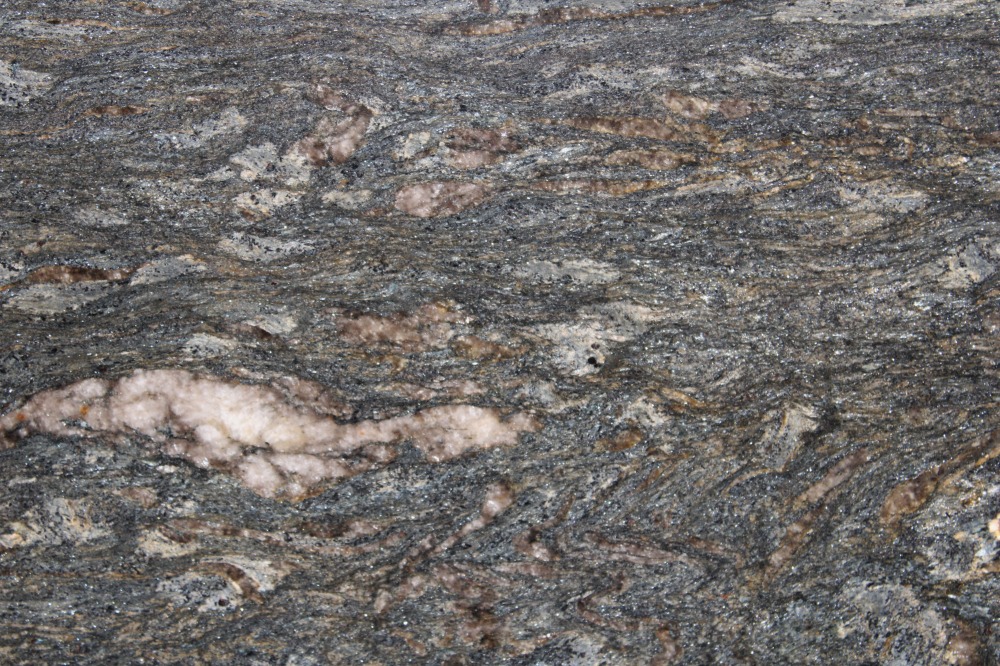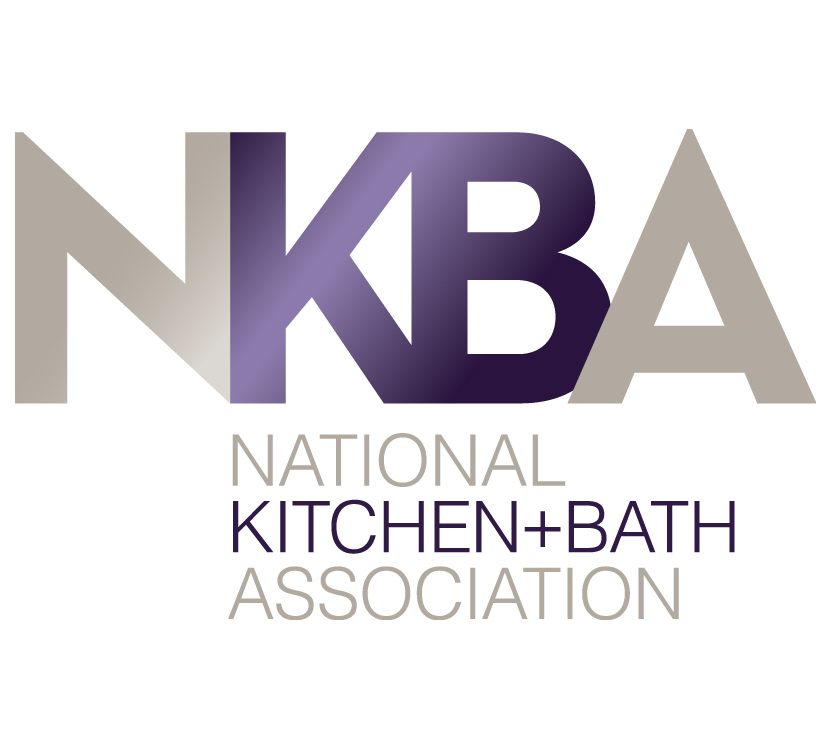
Schist countertops make for a unique, beautiful addition to just about any kitchen. This natural stone comes in deep, rich colors that range from neutral greys to golden hues. In today’s post, the experts at Cosmos SurfacesTM discuss schist countertops and how to care for them.
What is Schist?
First things first—let’s discuss where schist comes from. Schist is a natural stone made of up plate-shaped mineral grains. These grains are large enough to see with the naked eye. Their size allows them to reflect light, giving schist a natural luster. Schist is a metamorphic rock, which means it starts out as mud/shale or another type of igneous rock, then undergoes a transformation under extreme temperature and pressure changes.
The stone is largely characterized by its foliation (repetitive layering), which is similar to that seen in slate, though coarser and more distinct. Slate has the same origin as schist and can be seen a step along the way to schist formation. When, after forming, slate is exposed to even greater temperatures and pressure, it eventually turns into schist.
The Properties of Schist Countertops
Schist countertops can add gorgeous color contrasts and visual interest to a home, but that’s not all. Let’s look at the properties of schist:
Schist Hardness
Schist is a durable rock with the same hardness as marble, which comes in at a 4 on the Mohs scale of hardness. One thing to note about schist is that the larger the grains in a slab of schist are, the more carefully it will need to be installed. As the minerals lay parallel to each other, schist can have areas of weakness where the stone can split if it’s not supported underneath. This isn’t too much of a concern with flooring, but for kitchen countertops with overhangs, it’s important to avoid an overhang that runs parallel to the grain of your stone. An experienced stone supplier like Cosmos SurfacesTM can help you select the perfect stone for your needs.
Schist Coloring and Patterns
The coloring and patterns found in schist countertops can vary greatly from one slab to another. Colors typically range from black to grey, with white and ochre or golden hues giving the stone a rich, earth-inspired appearance. Schist is an excellent option for those looking to incorporate dark countertops into their kitchen. The rhythmic patterns created by the stone’s foliation can be likened to tree bark, or ripples on a body of water. This allows the stone to pair well with other natural features in the home, like wood and plants.
Schist Heat Resistance
Schist is highly heat resistant, which is always a plus in the kitchen. Furthermore, this quality makes the stone appropriate for use in other areas as well, such as around a fireplace.
Schist Countertops: Care and Maintenance
Schist is a porous stone, which means you’ll need to seal it on a regular basis. Sealing schist prevents staining and moisture-related damage like bacteria or mold growth in your countertops. For more information on this important aspect of natural stone care, see our blog all about sealing natural stone.
Schist can be vulnerable to taking on scratches or damage from acids. The following care guidelines will help protect your investment for years to come:
- Always use cutting boards and avoid using knives directly on the stone.
- Take care when handling heavy pots, pans or pizza stones, as they can scratch or chip your schist surfaces.
- Avoid placing weight on countertop edges or overhangs.
- Take extra care when handling acidic substances like wine, vinegar or fruit juices, and blot up spills right away.
- Use coasters, trivets and cooling racks.
- Blot up moisture, especially around sinks and faucets.
Schist Countertops: Daily Cleaning & Stubborn Stains
For daily cleaning, you can use mild dish detergent and a microfiber cloth or soft sponge. Avoid using abrasive cleaners and harsh/acidic chemicals on schist.
If you’re dealing with a stubborn stain, be sure to clean the area with water and mild dish soap, then blot excess moisture up. Next, make a paste by mixing 1 cup of flour, 1–2 tablespoons of a mild, neutral dishwashing liquid and enough water to give the mixture a consistency similar to peanut butter. Apply the paste to the stained area and cover it with plastic wrap, taping the edges down with painters tape (avoid regular masking tape). Let the paste sit for 24 hours, or until completely dry, then remove it with a wooden or plastic spatula. Clean the area and inspect the stain, repeating the process if necessary.
Work with Cosmos!
If you have questions about schist countertops and how to care for them, reach out to Cosmos SurfacesTM today! We bring decades of industry know-how to the table and our team of experts is always happy to help!
Color of the Month: Saffron
Saffron is a radiant gold with bright and deep undertones. It is perfect for adding sunny color to the walls in any living space. Pair with deep toned antiques or clean black and white.
The contrast of brilliant, shimmering gold with pure white porcelain is the thrilling essence of Sicily Gold. It is the meeting of luxury and refinement, a gilded chance encounter resulting in complete balance. Designed for use inside or outdoors, it is the perfect choice for floors, counters and walls in kitchens, bathrooms, and living rooms.












